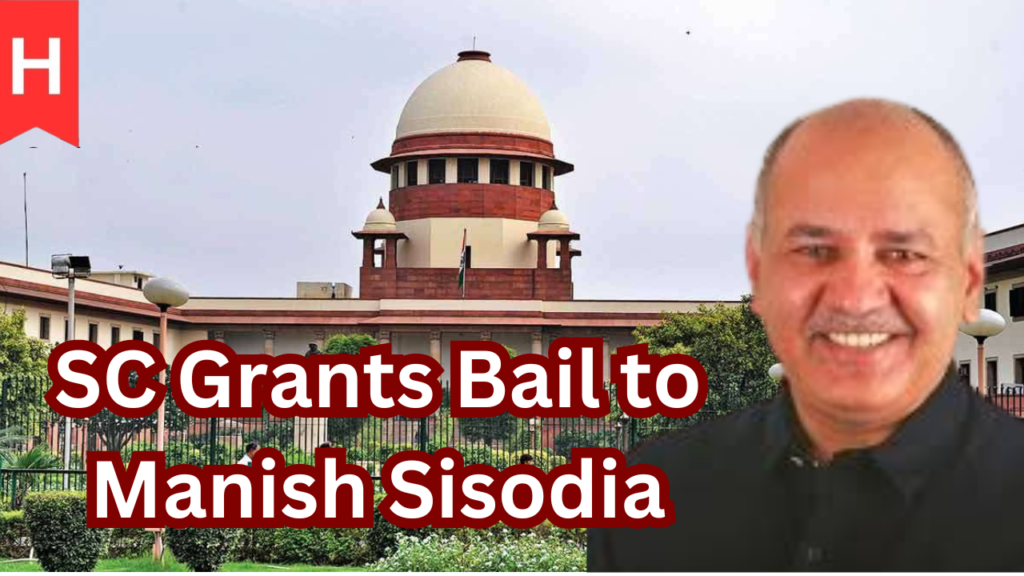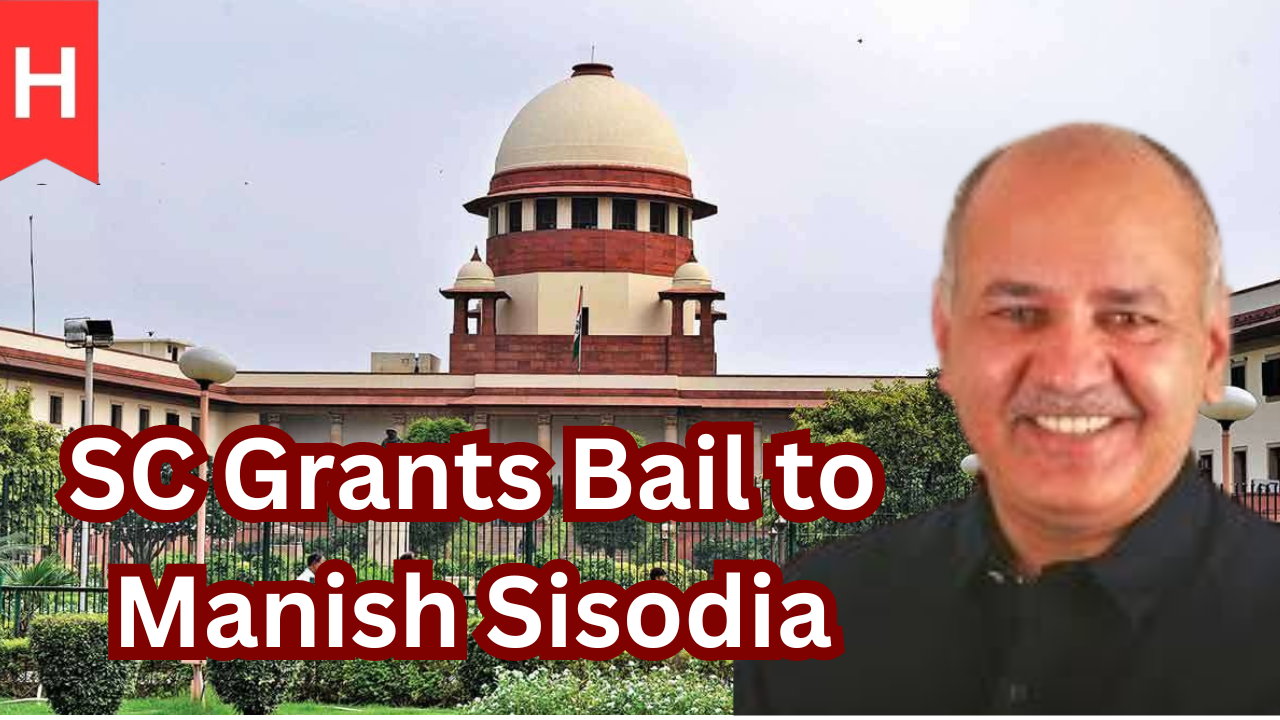Background Information
Manish Sisodia, Deputy Chief Minister of Delhi and a prominent leader of the Aam Aadmi Party (AAP) was arrested in early 2023 on allegations of corruption and money laundering related to Delhi’s liquor policy. This case is significant as it involves a high-profile political figure and raises concerns about how opposition leaders are treated by investigative agencies.
In the Indian legal system, bail is generally the rule, not the exception. Bail can be denied if there is a risk that the accused might flee, tamper with evidence, pose a threat to society, or tamper with documentary evidence. Delays in trial can also be a valid reason to grant bail, as prolonged custody without trial can be seen as unjust.
The Supreme Court intervened in Sisodia’s case, reminding lower courts not to use bail denial as a punishment. The court emphasized that protecting individual liberty and ensuring a fair trial are essential duties of the judiciary.
The Supreme Court’s decision to grant bail to Sisodia after nearly 18 months in custody highlights the importance of these legal principles. The Court allowed Sisodia to reapply for bail if the trial continues to be delayed. The article warns that if judges continue to deny bail without sufficient reason, it could erode public trust in the judiciary. The judiciary must be seen as a protector of individual rights, not an enforcer of pre-trial punishment. In summary, the case underscores the importance of upholding the principle that bail should be the default, not the exception and that the judiciary must ensure that individuals are not kept in custody without trial for extended periods.

Article Explanation
The article covers a significant decision by the Supreme Court of India, which granted bail to Delhi Deputy Chief Minister Manish Sisodia. This decision is a reminder of the fundamental principles of bail law in India, emphasizing that bail should not be denied as a form of punishment. The ruling highlights that in cases where the evidence is primarily documentary, the default position should be to grant bail unless there are compelling reasons not to, such as the risk of the accused fleeing or tampering with evidence.
Key Legal Principles and the Supreme Court’s Ruling
The Supreme Court’s decision reiterates the importance of adhering to established bail principles. Bail is generally considered the norm in the Indian legal system, meaning that an accused person should usually be granted bail unless specific conditions justify its denial. These conditions include:
- Flight Risk: If there is a significant concern that the accused might escape and not appear for trial, bail can be denied.
- Tampering with Evidence: If the accused has the potential to influence witnesses, tamper with evidence, or otherwise interfere with the investigation, bail may be refused.
However, in cases where the evidence against the accused is mostly in the form of documents, the likelihood of such interference is lower, making bail more appropriate. The Supreme Court also pointed out that if the trial is likely to be delayed or protracted, this should further support the granting of bail. Keeping someone in custody for an extended period without trial can be seen as unjust and contrary to the principles of fairness.
The Case of Manish Sisodia
In this particular case, Manish Sisodia had been arrested in early 2023 in connection with alleged corruption and money laundering related to Delhi’s liquor policy. The Central Bureau of Investigation (CBI) and the Enforcement Directorate (ED) were the agencies involved in his arrest. Despite his long period of imprisonment, nearly 18 months, the trial had not made significant progress.
The Supreme Court’s ruling on October 30, 2023, emphasized that bail should be considered, especially given the delays in the trial. The Court allowed Sisodia to reapply for bail if the trial continued to be delayed or dragged out. However, despite this directive from the highest court, the lower courts, including the trial court and the Delhi High Court, dismissed Sisodia’s bail applications. These courts justified their decisions by suggesting that the delays in the trial were due to Sisodia’s own legal manoeuvres.
Judicial Conduct and Public Trust
The article also raises concerns about a broader issue within the judiciary: the tendency of some judges to deny bail as a means of “playing it safe.” In other words, some judges may prefer to deny bail rather than face potential criticism for being too lenient. The Supreme Court criticized this approach, emphasizing that the principle of bail being the rule, not the exception, must be upheld. The Court’s decision highlights the need for judges to act in accordance with the law, rather than out of fear of repercussions.
The article concludes with a warning that if this trend of unnecessarily denying bail continues, it could lead to a decline in public trust in the judiciary. The judiciary is expected to protect the rights and liberties of citizens, ensuring that they receive a fair trial without being subjected to prolonged and unjust pre-trial imprisonment. If the public perceives that the judiciary is not fulfilling this role, it could undermine confidence in the legal system as a whole.
In summary, the Supreme Court’s decision in Manish Sisodia’s case serves as a crucial reminder of the importance of upholding the principles of bail law. It underscores that bail should not be used as a form of punishment and that the judiciary must act to protect individual liberties, especially in cases where there are delays in the legal process.
Join our telegram channel for regular updates of The Hindu Epaper Editorial Explanation-https://t.me/Thehindueditorialexplanation
The Hindu Epaper Editorial Explanation given by Hello Student is only a supplementary reading to the original article to make things easier for the students.
In conclusion, preparing for exams in India can be a daunting task, but with the right strategies and resources, success is within reach. Remember, consistent study habits, effective time management, and a positive mindset are key to overcoming any academic challenge. Utilize the tips and techniques shared in this post to enhance your preparation and boost your confidence. Stay focused, stay motivated, and don’t forget to take care of your well-being. With dedication and perseverance, you can achieve your academic goals and pave the way for a bright future. Good luck!
The Editorial Page of The Hindu is an essential reading for all the students aspiring for UPSC, SSC, PCS, Judiciary etc or any other competitive government exams.
This may also be useful for exams like CUET UG and CUET PG, GATE, GMAT, GRE AND CAT
To read this article in Hindi –https://bhaarat.hellostudent.co.in/

